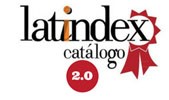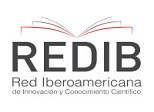Resilience as a Human Capacity in Strengthening Educational Management
DOI:
https://doi.org/10.69890/hallazgos21.v5i3.480Keywords:
resilience; managerial capacity; educational management.Abstract
The present study aims to analyze resilience as a human capacity in the strengthening of educational management in undergraduate teachers, Acarigua Academic Extension, of the Institute for Professional Improvement of Teaching (IMPM) in Venezuela, which was theoretically supported by assuming the implicit attitude in the human being, which leads to overcome any adversity to transform reality; That is why the educational environment, in the face of adversity, requires the managerial capacity of the teacher or director, because they must resist, adapt to overcome and recover in an effective and timely manner in the face of the novelties to which they are exposed. For this, the theories of the Hierarchy of Needs of Abraham Maslow and the Motivational Factors of Hertzberg, related to the different levels of resilience, were assumed. Methodologically, the study was located in the positivist paradigm, quantitative approach, oriented through a descriptive field research, considering the IMPM teachers as a population and, as a sample, eight professionals who work at the Acarigua Academic extension, to whom a 24-item questionnaire was applied. It was found out that the resilience present in educational management in undergraduate teachers is very weak, because the teacher gives up in difficult situations and does not react in the best way; Added to this is the lack of resources and tools. Despite the existence of the best disposition to move forward, according to this situation, it is recommended that professionals who face challenges should be helped, who require motivation and institutional support, so that educational management is strengthened and is able to address situations that they are negative for them and training activities could be encouraged.
References
Arias, V. (2017). Universidades Públicas en Barquisimeto no tienen presupuesto. El Estímulo. Diario Digital. Disponible: http://elestimulo.com/blog/universidades -publicas-en-barquisimeto-sin-comedor-por-falta-de-presupuesto/. [consulta 2018 Enero 8].
Benavides, A. (2002). Competencias y características Gerenciales. Trabajo de Investigación. Universidad Militar Nueva Granada. Recuperado de colcienciasscienti.colciencias.gov.co
Cabrera, A. (2000). Las Competencias Gerenciales. Buenos Aires, Argentina: Granica.
Carrasco, P. (2003). Competencias Gerenciales. México: Panapo.
Chiavenato, I. (2004). Introducción a la Administración. México: Mc Graw Hill.
Díaz, F., & Hernández, G. (2004). Estrategias docentes para un aprendizaje significativo. México: Mc Graw Hill.
Factory Mutual Global. (2016). La Resiliencia de América Latina: de Costa Rica a Venezuela. (Trabajo Compañía de Seguros). Recuperado de http://www.forumworldofficeforum.com
Fletcher, K. (2004). La gerencia del siglo XXI. Caracas: Cuadernos IESA.
Freud, S. (2000). Teoría del Psicoanálisis. Recuperado de http://bibliopsi.org/docs/freud/18%20-%20Tomo%20XVIII.pdf
Galarza, P. (2011). Estrategias gerenciales bajo el enfoque de calidad total en instituciones de nivel medio. Disponible: http://www.scielo.org.ve/ scielo.php?pid=S0798-97922002000300007&script=sci_arttext
George, D. (2005). Liderazgo en la Gerencia Educativa. México: Delta.
Hodgetts, E. (2003). Las Condiciones Intrínsecas y los Niveles Motivacionales. México: Delta.
Ivancevich, E., Konopaske, A., & Matteson, D. (2006). Los Planteamientos de Herzberg y las insatisfacciones organizacionales. Argentina: Kapeluz.
López, C. (2016). Resiliencia organizacional como estrategia del docente directivo en la gerencia de la educación secundaria. Universidad Yacambú. Instituto de Investigación y Postgrado. Barquisimeto.
Maslow, A. (2003). Teoría Motivacional. México: Mc Graw Hill.
Miller, C. (1995). Teorías de la Administración. México: Prentice Hall.
Mintzberg, W. (1996). El Proceso Estratégico. Madrid: Pearson Education.
Morales, I. (2013). Los Pilares de la Resilencia. Disponible en http://ignasimartin.blog spot.com/ 2013/ 01/los-pilares-de-la-resiliencia.html
Oyarce, A. (2004). Análisis sobre los enfoques y tendencias del liderazgo en las organizaciones educativas. Lima: Ediciones Universidad Alas Peruanas.
Palomar, L. (2012). Estudios de Resilencia en América Latina. Colección El Oficio de la Historia. Vol 1. México: Editorial Universidad Iberoamericana.
Pittaluga, C. (2014). Liderazgo Resilente. La Innovación en Entornos Adversos. Cambiando Paradigmas. Caracas: Editorial Galac.
Rincones, L. (2016). La Resilencia como una capacidad del talento humano, para gerenciar su accionar: Una perspectiva fenomenológica. Universidad Pedagógica Experimental Libertador. Instituto Luis Beltrán Prieto Figueroa. Recuperado de www.serbi.ula.ve
Riserg, T. (2009). Los dos Factores de Herzberg. Análisis de Necesidades Básicas. Colombia: Delta.
Robbins, S. (2002). Comportamiento organizacional. México: Prentice Hall.
Rodríguez, S. (2013). Programa “Yo quiero, yo puedo” en la Resiliencia de los estudiantes de tercer grado de educación Primaria Otuzco. Escuela de Postgrado UCV.Disponible: sonju_roce@hotmail.com.
Ruiz, L. (2000). La Gerencia Educativa. Ensayos. Disponible: https://www.club ensayos.com/Psicología/Gerencia-Educativa/93400.html
Sabino, C. (2009). El Proceso de Investigación. 4ta ed. Caracas: Editorial Panapo.
Sambrano, J. (2010). Resilencia. Transformación positiva de la Adversidad. Amazon: Editorial Alfa.
Segiovanni, F. (1994). Administración de Empresas. Madrid: Mc Graw Hill.
Senge, P. (2005). La Quinta Disciplina. México: Mc Graw Hill.
Tamayo y Tamayo, M. (2010). La Investigación Social. México: Panapo.
Universidad Pedagógica Experimental Libertador. (2013). Manual de Trabajos de Grado de Especialización y Maestría. Caracas: FEDEUPEL.
Valera, M., & Salgado, P. (2010). La Automotivación y la Teoría de Hertzberg. Colombia: Editores Latinos.
Published
How to Cite
Issue
Section
License
Los artículos enviados a la Revista Científica Hallazgos21 deberán ser totalmente originales e inéditos.
Los autores son los responsables de los textos y las imágenes incluidas en los artículos y no necesariamente reflejan el pensamiento de la editorial o de la Pontificia Universidad Católica del Ecuador, Sede Esmeraldas (PUCESE).
Los autores disponen cederle a la Revista Científica Hallazgos21 todos los derechos inherentes para la edición, publicación y distribución o divulgación del mismo.
Se autoriza a las revistas firmantes de los acuerdos de Encuentros de Revistas Latinoamericanas para reproducir en parte o totalmente los artículos con la sola mención de la fuente claramente señalada.







